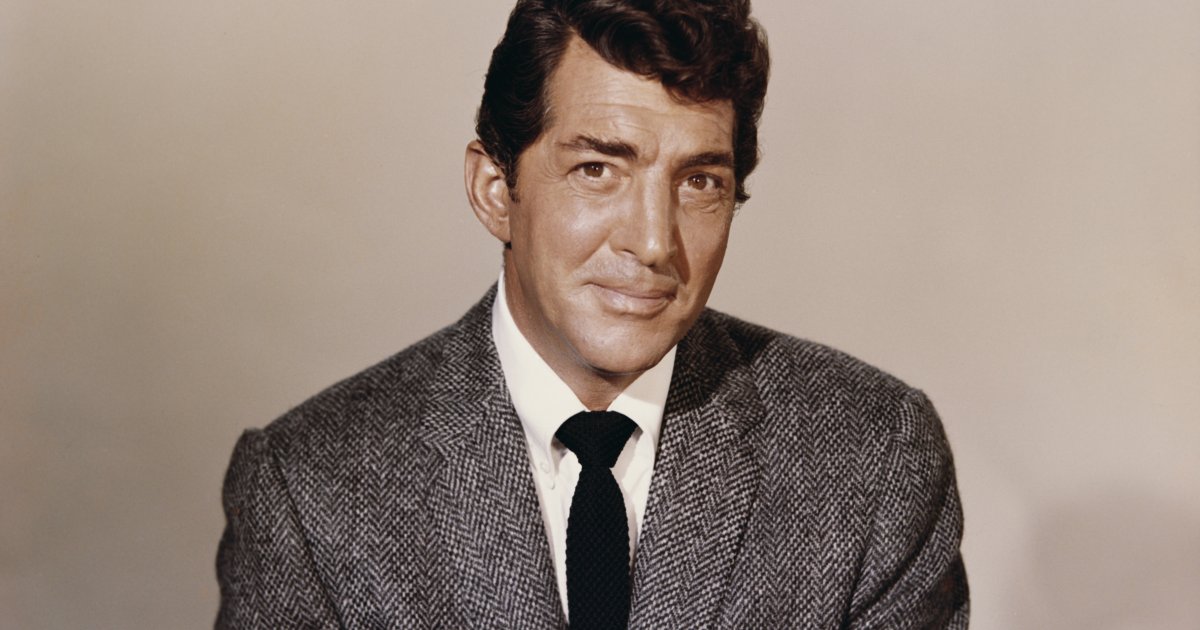Celebrating "The Coolest Man Who Ever Lived"
- Dean Martin was an entertainment icon. He died of acute respiratory failure while battling lung cancer in 1995.
- Martin was known for his easy-going charisma on stage as an actor, singer and comedian. He continued to make appearances until his lung cancer diagnosis in September 1993.
- Lung cancer can be tricky to diagnosis and treat because symptoms often don't appear until the cancer has spread. An initial symptom, for example, could be as serious as a seizure if the lung cancer has already spread to the brain. But other symptoms can include increased coughing, chest pain, unexplained weight loss, shortness of breath, wheezing, losing your voice or persistent infections like bronchitis or pneumonia.
Martin died on Christmas Day at the age of 78, but his legacy lives on after a lifetime of accomplishments. Born on June 7, 1917, Martin’s career as an entertainer really kicked off after his partnership with comic Jerry Lewis in 1946. Their act a combination of “manic comedy and debonair music” shot them into fame and led to a string of hit movies and television appearances.
Read More
Understanding Lung Cancer
Martin continued to make appearances until his lung cancer diagnosis in September 1993. Lung cancer, the second most common type of cancer, is the leading cause of cancer deaths for men and women in the United States. Diagnosis and treatment of the disease can be tricky since symptoms often don't appear until the cancer has spread. An initial symptom, for example, could be as serious as a seizure if the lung cancer has already spread to the brain. But other symptoms can include increased coughing, chest pain, unexplained weight loss, shortness of breath, wheezing, losing your voice or persistent infections like bronchitis or pneumonia.
The two main types of lung cancer are non-small cell, which makes up 85 percent of cases, and small-cell. These types act differently and, accordingly, require different types of treatment. Dr. Patrick Forde, a thoracic oncologist at Johns Hopkins Medicine, tells SurvivorNet about how distinguishing between the two types and their subtypes can be very beneficial.
What Happens When You've Been Newly Diagnosed With Lung Cancer
"Within that non-small cell category, there's a subtype called non-squamous adenocarcinoma, and that's the group of patients for whom genetic testing is very important on the tumor," he explains. "Genetic testing is looking for mutations in the DNA, in the tumor, which are not present in your normal DNA."
Advancements in Lung Cancer Treatment
Lung cancer is very serious, but the outlook has improved greatly since Dean Martin’s diagnosis due to declining smoking rates and improvements in surgical techniques and radiation delivery. Newer treatments like immunotherapy and targeted agents are also dramatically improving the length and quality of life for lung cancer patients. Targeted therapies, for example, allows doctors to target specific genetic mutations in lung cancer patients.
"It's amazing to me now that you can have stage 4 lung cancer and actually not even need chemotherapy," Dr. Brendon Stiles, chief of thoracic surgery & surgical oncology at Montefiore and Albert Einstein College of Medicine, told SurvivorNet in a previous interview. "If you have high expression of a protein that we know is targeted by immunotherapy, you may just get immunotherapy alone."
Erlotinib (Tarceva) and gefitinib (Iressa) are among the first targeted drugs approved to treat lung cancer, he explained. These drugs have proven effective in prolonging the time that the cancer does not worsen in combination with chemotherapy and immunotherapy and when used alone. Given as pills, these and other similar drugs work by targeting epidermal growth factor receptor (EGFR), a protein that, when overreactive, makes cancer cells grow and divide.
These mutations are more common in people with lung cancer who are female or who have never smoked, Dr. Ronald Natale, director of the Lung Cancer Clinical Research Institute at the Cedars-Sinai Medical Center, told SurvivorNet.
Targeted Therapy for Lung Cancer
And, thankfully, we've seen other steps towards treatment improvements very recently when the Food and Drug Administration (FDA) approved a new treatment for people with a type of lung cancer that is particularly resistant to treatment because it contains a genetic mutation called KRAS. The drug, called sotorasib (brand name: Lumakras), is meant for lung cancer patients whose tumors have a mutation called KRAS G12C and whose cancer has spread even after treatment with chemotherapy or other medications.
Learn more about SurvivorNet's rigorous medical review process.


